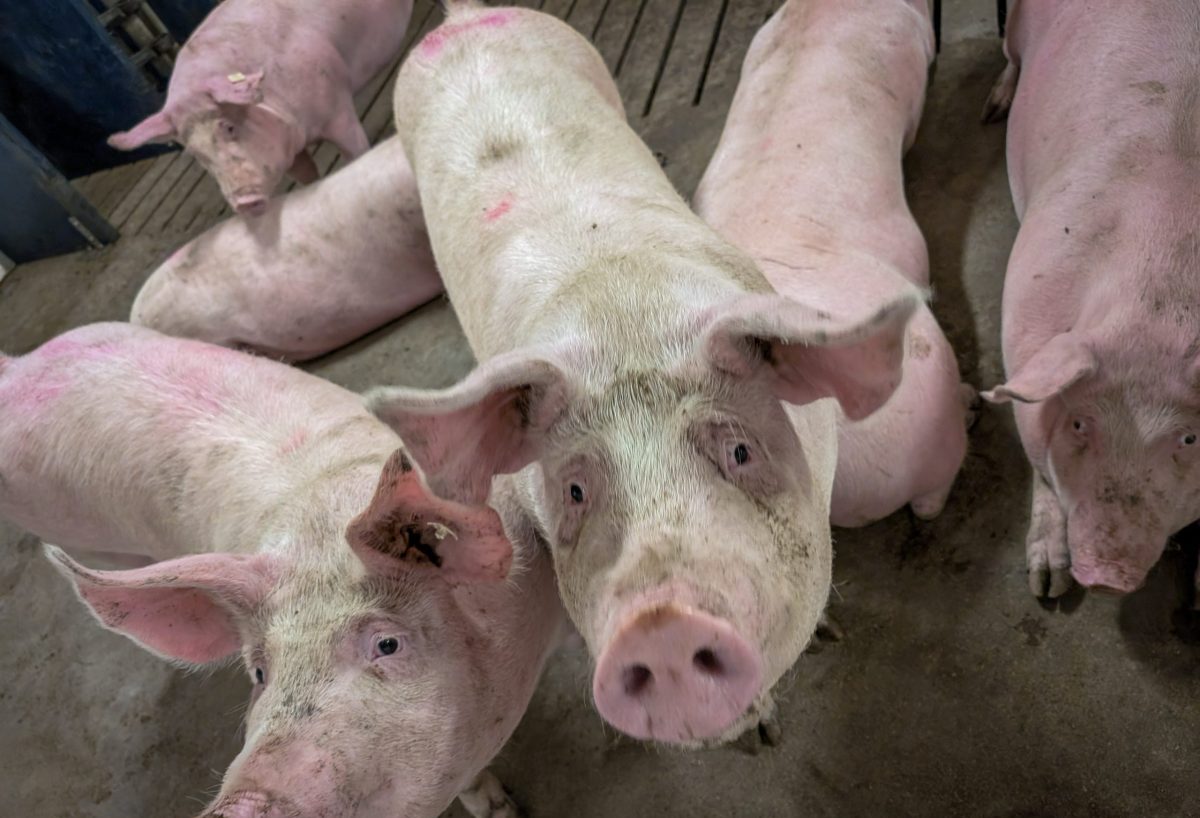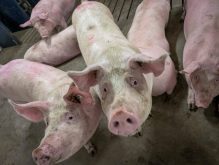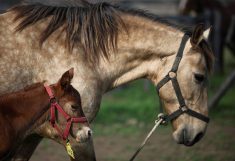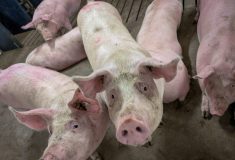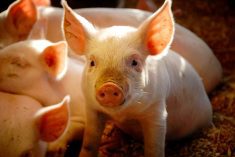A Quebec-based pork company is calling for transparency around pork from gene-edited pigs, should those animals be approved for the Canadian market.
“Without enforceable standards and transparent labelling, consumers cannot be certain the pork they purchase hasn’t been altered through genetic engineering,” said duBreton president Vincent Breton in an Aug. 27 news release.
This summer, the federal government completed public consultation around regulation of pigs that are resistant to Porcine Reproductive and Respiratory Syndrome (PRRS) due to gene editing.
Read Also
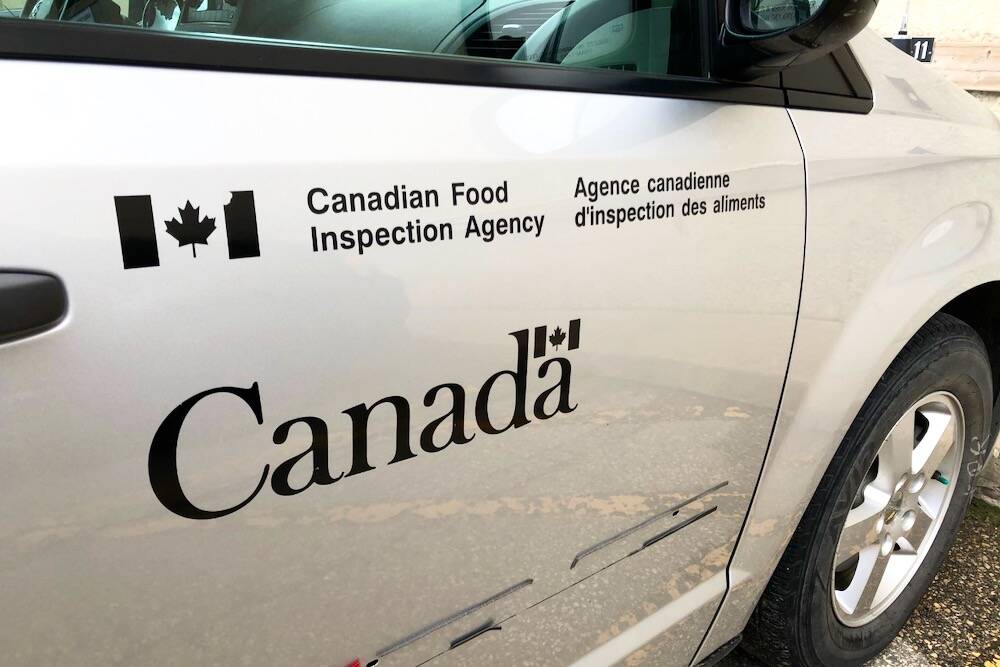
CFIA adds controls for imports of Spanish feed ingredients after African swine fever outbreak
The Canadian Food Inspection Agency (CFIA) has added Spain to a list of countries subject to feed import controls due to an outbreak of African swine fever in that country.
The U.S. Food and Drug Administration cleared the pigs for use in the American food supply earlier this year, saying the edits are safe for pigs and for humans who consume pork.
However, according to a duBreton survey, 74 per cent of consumers are “concerned about gene-edited pork in their food supply and demand total transparency,” the news release said.
Clear standards
DuBreton sells three lines of pork, according to its website: organic, humanely raised, and raised without antibiotics. It also holds certifications like Certified Humane Raised and Handled, and Global Animal Partnership.
The Canadian organic standards don’t allow gene-edited crops, livestock or material to be used in production. However, duBreton has been seeking clarity from other certification bodies and calling for them to take a clear stance against gene-edited pigs.
“Not being clear to the consumer and not giving him a chance to make a choice is wrong,” Breton said in an interview.
“We’ve not necessarily went to requesting a ban (on the use of gene editing), but at least, I mean, consumers should be aware.”
Breton said government-mandated labelling would be preferred, but at very least they’re looking to other certification bodies to take a stance against gene-edited animals.
Organic sector concerns
The Canadian organic sector has previously decried the lack of mandated transparency and traceability for gene-edited crops.
Health Canada deemed gene-edited crops safe for the food supply in 2022, and the Canadian Food Inspection Agency released its guidance the next year. Federal guidance put most gene-edited crops on the same plane as conventionally bred varieties.
No special labelling is required, though the government pledged a transparency steering committee and database.
A significant portion of the organic sector’s concern revolved around contamination of organic food supplies — for instance, due to cross-pollination or inadvertent purchasing of gene-edited seed varieties.
It argued that if it couldn’t guarantee food was free from gene-edited materials, it would lose credibility with consumers and trading partners.
Less risk of contamination
In the case of gene-edited livestock, the risk of cross-contamination is lower with livestock than with crops said Karen Murchison, executive director of Canadian Organic Growers.
Animals are less mobile than seed crops and are easier to track, Murchison said. However, the Canadian Organic Growers would still like to see mandatory labelling within the supply chain.
“We cannot see that livestock move into our production system,” she said. “Again, it’s really about that transparency and labelling.”
Breton said that since duBreton is largely vertically integrated, inadvertent use of edited genetics isn’t much of a risk for them. They can request guarantees from their genetic suppliers.
However, he said if certification bodies don’t take a firm stance on gene editing in their protocols, meat sold under those labels could include gene-edited pork.
It could confuse consumers or dilute claims like ‘natural,’ he said.
“Here I have a natural product at a dollar a pound less, and I have this Certified Humane. What’s the real difference? … They can’t become specialists on everything they eat.”


